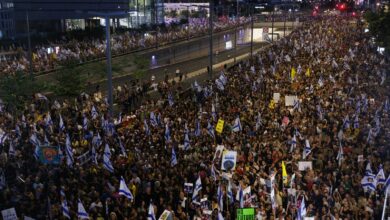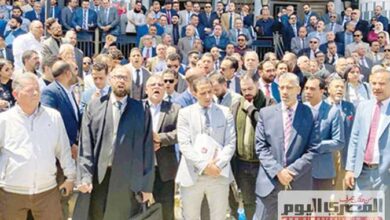In 2005, a reporter from Al-Wafd newspaper asked me what I thought about the future of the Muslim Brotherhood. As part of my answer, I said that I would bet on the group’s youngsters. I thought they belonged to a generation that interacted greatly with the outside world – through the internet, books and satellite TV – exposing them to a variety of alternative ideas, be they leftist, liberal or enlightened Islamist. I also believed the educational capacity of the Brotherhood leaders was declining as the youths became more exposed to other cultures and experiences
One month before the revolution, Omar al-Beltagy (son of the prominent Brotherhood leader Mohammed al-Beltagy) asked me to give a lecture to a group of young Brotherhood members about the group’s vision for the upcoming period. I didn’t end up delivering the lecture because of the revolution. I did, however, read a document that Omar al-Beltagy sent to me and found it to be clearly influenced by the experience of the Justice and Development Party in Turkey.
Three days before the revolution, I participated in a discussion at the Press Syndicate about a book by Gamal Nasr, former media advisor to the Muslim Brotherhood’s Supreme Guide. I critiqued Essam al-Erian, a prominent Brotherhood spokesperson, for claiming that nobody had invited the Brotherhood to participate in the 25 January protest. I argued that the protest was not a dinner party or a wedding that required an invitation and that the Brotherhood – as the most organized opposition group in Egypt – should have joined the rally. I told them if they did not do this they would be held accountable before God and history.
As I left, three Brotherhood youths approached me and said “We will not abide by their orders; we will be participate.” I saw tens of them in Tahrir Square on 25 January. The Brotherhood’s leaders and other obedient followers did not participate until after 28 January, dubbed the Friday of Rage, when the military issued a statement recognizing the legitimacy of the revolution.
When I was invited to gives lectures in various villages and cities after the revolution, I traveled with Ahmed Ban, a young Muslim Brother who I met through the distinguished economic intellectual Gouda Abdul Khaleq. Ban was a model of a politically conscious youth who was open to other ideas and put Egypt’s interest ahead of the Brotherhood. Hearing him talk reassured me that I had made the right bet a few years ago. This feeling was reinforced when other Brotherhood youths rejected their leaders’ boycott of subsequent Friday demonstrations. Instead, these young people joined other political forces in the square in an effort to avoid divisions and complete the revolution. In Tahrir, they would run into me amidst large crowds and press my hand. A precious feeling it was.
Today, nobody is asking the Brotherhood youth to revolt against their elders or split from their organization. Instead, we urge them to maintain their resolve and do their best to formulate a new vision for the group and open it up to all of Egypt. We want the Brotherhood youth to support a civil state based on equality, solidarity and honesty, a position in line with the teachings of Islam. We also want them to press their elders to respect the principles outlined in the program of the Brotherhood’s Freedom and Justice Party, such that their actions are consistent with their words.
As for those in Brotherhood who want to distance the group’s young people from Egypt’s youth movement – even after the Brotherhood prided themselves on the fact that their youths participated in the revolution from the start and had representatives in the Revolutionary Youth Coalition – they should be confronted from within the organization.
Two months ago, the Brotherhood established its revolutionary legitimacy by celebrating the actions of their youth; today, it is punishing them and pushing them away, thereby putting the organization’s credibility on the line.
Nevertheless, I still bet on the Brotherhood youth. They are engaged in a difficult struggle, but I believe they will succeed in promoting awareness and enlightenment inside the group. To the youth of the Brotherhood, I say: Do not distance yourselves from the broader Egyptian youth movement. Egypt stands above all divisions and organizations. Only with a strong Egypt will the East be proud.
Translated and abridged from the Arabic Edition.




